Class of 2025 Spotlight
Fellow Spotlight
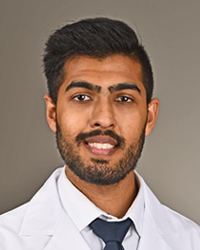
Hassan Ashraf, MD
Where did you grow up? I grew up in Orlando, Florida
Where did you go for Residency? I went to the University of Florida for Residency (Go Gators!!)
Why did you go into Cardiology? I chose cardiology for several reasons. The field of cardiology is an ever-expanding field with ongoing technical advances. With cardiology, I can augment my foundations of internal medicine with specialty imaging and procedural skills. My personal interest is in acute myocardial infarction cardiogenic shock.
Why did you choose UT? I chose UT for the challenge. I wanted to leave my comfort zone to further strengthen myself.
What are some strengths of the UT program? The UT program is situated in the heart of the Texas Medical Center. It benefits from strong faculty and a large patient population. This program does very high volume mechanical circulatory support and has several floors of critical care level of care units.
What are your future career goals after fellowship? My future career goals are to pursue a training in interventional cardiology with a particular focus on shock and circulatory support.
What do you like to do in Houston? Houston is an amazing city. There is something to do for everyone. It is family-friendly and great for those without families. It is an ethnic, multicultural melting pot. It is home to NFL, NBA, MLB, and MLS teams. There are several museums and parks all near the medical center. It is a foodie paradise!

Matthew Bruce, MD
Where did you grow up? I was born and raised in Houston, TX. I grew up in the Meyerland neighborhood, just a few miles from the Texas Medical Center!
Where did you do residency? I completed an internal medicine residency at Northwestern in Chicago.
Why did you go into cardiology? I grew up playing sports and studied as an engineer. I think this naturally led me to love understanding how the body responds to stress, including the adaptive response of the body. I’m fascinated by cardiovascular physiology and mechanics and the emphasis on translating these concepts into clinical practice, particularly with bedside assessment and the wide variety of clinical tools, including multimodality imaging or more invasive hemodynamic measurements. My research experiences have included studying the evolution of heart failure trials and studying heart failure prognostication and primary prevention. I’m interested in utilizing imaging modalities for early diagnosis of heart failure and valvular heart disease.
I had the opportunity to learn from some truly extraordinary cardiologists at Baylor and Northwestern, who embodied the role of master clinician, fantastic teacher, and wonderful mentor! I hope to emulate them as I progress through cardiology fellowship training.
Why did you choose UT? There are very few programs that offer the opportunity to train at a high volume, quaternary care referral center like Memorial Hermann, an excellent county hospital like LBJ/Harris Health, and the #1 cancer hospital in the world (MD Anderson).
However, perhaps most importantly, my interview day was a great opportunity to meet the faculty and fellows, who were all warm, welcoming, and brilliant.
I also love Houston!
What are some strengths of the UT program? The diverse patient population, rigorous clinical training, research opportunities, and amazing faculty! The volume of patients managed by the heart failure, interventional, and electrophysiology group is amazing and provides fellows with an excellent volume of procedures and clinical learning. Additionally, I’m interested in cardiovascular imaging and was very attracted by the opportunities to work with the amazing faculty in echo, MRI, and PET/nuclear.
What are your future career goals after fellowship? Non-invasive/advanced imaging, prevention, and machine learning in cardiovascular imaging
What do you like to do in Houston? I enjoy spending time outdoors with my wife, Yuli, and our two dogs, Ralph and Martin. We love the exceptional food in Houston and exploring the amazing coffee shops around our neighborhood! I’m also a big sports enthusiast (Astros, Rockets, Dynamo, and Texas A&M football)!
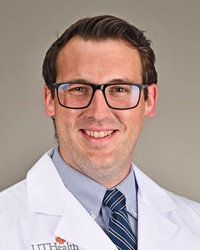
Joshua Hahn, MD
Where did you grow up? Tyler, TX
Where did you go for Residency? Baylor College of Medicine
Why did you go into Cardiology? I previously worked as an ER scribe before medical school, and I saw an interventional cardiologist treat a patient with a STEMI which initially sparked my interest. Additionally, I appreciate the multiple contexts that cardiologists can operate in with longitudinal therapeutic relationships with their patients.
Why did you choose UT? I chose UT because of the excellent reputation they have in training highly competent cardiologists. Additionally, I have an interest in structural cardiology and UT has a robust structural heart program that is truly state-of-the-art.
What are some strengths of the UT program? There is something for everyone in this program, and there is ample support to pursue any type of cardiology career you desire. I also appreciate the very high clinical volume and diversity of clinical exposure that the program provides.
What are your future career goals after fellowship? At this time, I am planning to pursue a career in interventional cardiology.
What do you like to do in Houston? I appreciate that outdoor activity is essentially a year-round option given our subtropical climate. There are countless restaurants to try, and it is a family-friendly environment with an excellent cost of living.
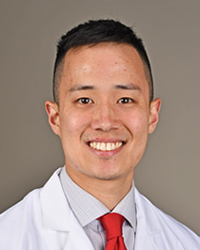
Andrew Kim, MD
Where did you grow up? Fullerton, California
Where did you go for Residency? Mount Sinai Morningside & West (New York, NY)
Why did you go into Cardiology? As a resident, I realized that whether I was going to go into primary care or another subspecialty, I would still have to focus much of my efforts on the downstream prevention of cardiovascular disease, which has and continues to be the leading cause of death in this country. I wanted to go into a specialty that built upon a foundation of internal medicine with the ability to further my understanding of the cardiovascular diseases I was managing.
Why did you choose UT? Having done residency training in a major city with the opportunity to rotate at different institutions, I wanted a similar experience for fellowship training. I felt very welcomed during the interview day, and the program attracts people who work well with each other.
What are some strengths of the UT program? The program is adaptable and has grown in size over the years and has adapted in response to feedback from fellows (for example, the recent implementation of a two-fellow night float system). We work with faculty members who are nationally recognized for their contributions to the field, such as in the assessment of coronary physiology and flow reserve. While the training is rigorous, I am confident that as a result, I will be well-prepared for the rest of my career.
What are your future career goals after fellowship? I would like to go into private practice with a focus on non-invasive imaging modalities (e.g. CT, nuclear, PET) and prevention of cardiovascular disease.
What do you like to do in Houston? When I am not stuck at the hospital or in traffic, I enjoy checking out new restaurants, playing golf, and spending time outdoors.
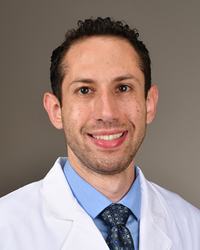
Husam Shadid, MD
Where did you grow up? Qatar
Where did you go for Residency? University of Michigan
Why did you go into Cardiology? Heart disease is the leading cause of death in the US and worldwide. Going into this field, I know I will be helping a large population of patients, especially with the availability of a multitude of therapies that are ever-growing. The physics, mathematics and logical flow behind the field is appealing to me. Finally, I truly enjoy the critical care and interventional aspect of the field.
Why did you choose UT? The faculty and fellows have a great sense of collegiality and comradery. I knew that I would be well supported in my years here while taking care of a high volume of very sick patients at a nationally renowned quaternary care center.
What are some strengths of the UT program? It is an extremely strong hands-on program that has excellent clinical training with exposure to a broad spectrum of diseases at multiple clinical sites. Each site has its own strengths with different patient populations, facilities, resources and mentors. Faculty promote autonomy yet are always willing to help and are readily available. Finally, there is excellent exposure to advanced mechanical cardiac support and complex interventional cases.
What are your future career goals after fellowship? To pursue a sub-fellowship in interventional cardiology, consider private practice and continue to help underserved communities
What do you like to do in Houston? There are always new restaurants to try out and so many hiking trails to explore. I enjoy hanging out with co-fellows, visiting different parks and going on cruises whenever I get a chance.
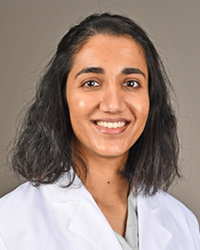
Shruti Singh, MD
Where did you grow up? I was born in India, then moved to Katy, TX when I was in high school.
Where did you go for Residency? UT Southwestern Medical Center
Why did you go into Cardiology? Learning cardiovascular physiology and discovering the blueprint behind each heartbeat is what sparked my interest in cardiology during medical school. My interest in cardiology grew during residency training when I had the opportunity to learn from patients with common and uncommon cardiac diseases, as well as teach my patients about their cardiovascular health. The wide scope of practice and constant evolution of evidence in the field of cardiology makes me excited to pursue a career in this field.
Why did you choose UT? During my UT interview, I felt like the culture at UT aligned with my personality. I really enjoyed talking with all my interviewees and could see them being my mentors. I also had been away from home for 11 years, and wanted to be closer to my parents.
What are some strengths of the UT program? UT is a high volume program and provides plenty of experiences in pathology and procedures alike. It also has a somewhat unique experience in cardio-oncology with rotations at MD Anderson. The UT program has resources to prepare you for any type of career in Cardiology.
What are your future career goals after fellowship? I am interested in Advanced Imaging vs General Cardiology
What do you like to do in Houston? Houston has great food in all cuisines, which I love to explore. I also live to discover the trails in all the different parks. For nerds like me, Houston also has many museums. And for beach days, Galveston is only an hour away.